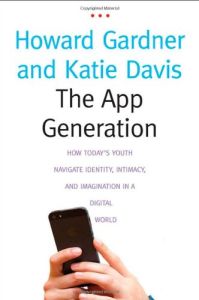Join getAbstract to access the summary!

Join getAbstract to access the summary!
Howard Gardner and Katie Davis
The App Generation
How Today’s Youth Navigate Identity, Intimacy, and Imagination in a Digital World
Yale UP, 2013
What's inside?
Ubiquitous digital media may affect young people’s psychological development, but they’ve never been without it.
Recommendation
Today’s young people have never known a world without ubiquitous digital media. Education scholars Howard Gardner – the prolific multiple-intelligences expert – and Katie Davis argue that the constant access to software applications – “apps” – and to online information and communities changes how young people approach the psychological challenges of “identity, intimacy and creativity.” Some of their conclusions seem mundane, but many of their findings offer substantial and surprising insights into evolving adolescent psychology. getAbstract recommends this study to anyone marketing to youth, to parents and educators, to software developers, and to young people themselves, whether they read it on paper or online (we’ve got an app for that).
Summary
About the Authors
Howard Gardner, the Hobbs Professor of Cognition and Education at the Harvard Graduate School of Education, directs the Harvard Project Zero research program. Co-author Katie Davis is an assistant professor at the University of Washington.

















Comment on this summary